Patients live on machines and medicine.
Ms. Do Thi Trang (1994, from Nam Dinh ) has been on dialysis for 5 years at the Central Endocrinology Hospital in Hanoi. Traveling by an old motorbike, Ms. Trang has to go to the hospital for dialysis 3 times a week, each time lasting 3 and a half hours to filter blood and water.
According to Ms. Trang, the food she eats every day also contains many toxins, her kidney function is weakened, so she has to rely on machines to eliminate toxins from her body. In her daily diet, she adjusts her diet according to each person's constitution. Personally, in winter, she needs to limit her water intake to avoid edema that causes difficulty breathing, pulmonary effusion, and cardiac effusion. This disease has followed Ms. Trang throughout her life, she has to go to the hospital every other day, her life is always controlled. Living alone in a rented room of less than 8 square meters, every time her body is too tired, Ms. Trang has to ask her younger brother to come and take care of her.
Regarding medical examination and treatment costs, which are covered by insurance at 95%, she has to pay an additional nearly 1 million VND per month for protein infusions and daily medication costs...
For the patients in this boarding house, holidays are like normal days, even a bit sad because they cannot gather with family and have fun with friends like everyone else. “On holidays, I still have to go to the hospital as usual,” said Ms. Trang.
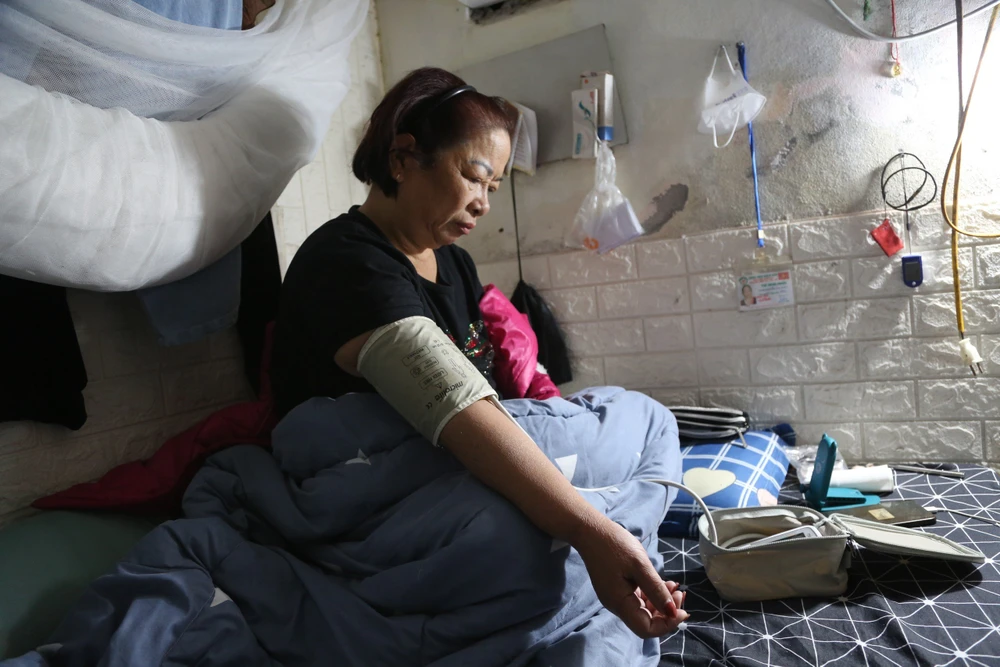
Living in the same boarding house as Trang, Ms. Nguyen Thi Binh (born in 1972, Thach That, Hanoi ) has been associated with the "dialysis neighborhood" for a long time. In 2004, she suffered from stage 1 kidney failure when giving birth, and in 2007, she suffered from severe kidney failure, but it was not until 2013 that Ms. Binh went to Bach Mai Hospital for dialysis. Abandoned by her husband and with young children, her parents' encouragement helped her decide to go for dialysis. "Luckily, the government provided insurance, so it saved a lot of money," Ms. Binh said.
This disease requires taking a lot of medicine if you want to have stable health, but Ms. Binh only dares to buy blood pressure support medicine because she has no money. Although the insurance covers 100% of the cost of dialysis, Ms. Binh is always worried because the medicine is expensive. "I appreciate anything that benefactors give, but what we need more than anything is money, only with money can we prolong our lives." Ms. Binh added: "People on dialysis like us, do not die from the disease but die from high blood pressure and heart attacks. Just the other day, a man in the boarding house who had been on dialysis for 22 years died while being rushed to the hospital due to a heart attack."
Struggling to get medical treatment and make a living, the patients here have to accept living in rooms less than 8 square meters. The roofs of the rooms in the boarding house are low, and standing on the bed touches the roof, so it is very hot and stuffy in the summer, and cold on cold winter days. “I just need a place to sleep, rest and eat after each time I come back from the hospital, so it is okay if the room is cramped and stuffy. It has been raining and cold these past few days, and the blanket stretched close to the roof is soaked because of the cracks and leaks,” Ms. Binh shared.
The will to face
Patients in the boarding house have to find extra jobs to make ends meet, such as driving motorbike taxis, making paper greeting cards, setting up a barbershop, selling drinks, shining shoes, etc. When she started dialysis in Hanoi, Ms. Trang made paper greeting cards. The materials and tools were provided by the factory, and the staff only needed to put in the effort to complete the product according to the sample. When the goods were needed urgently, she had to take advantage of the time to deliver them on time.
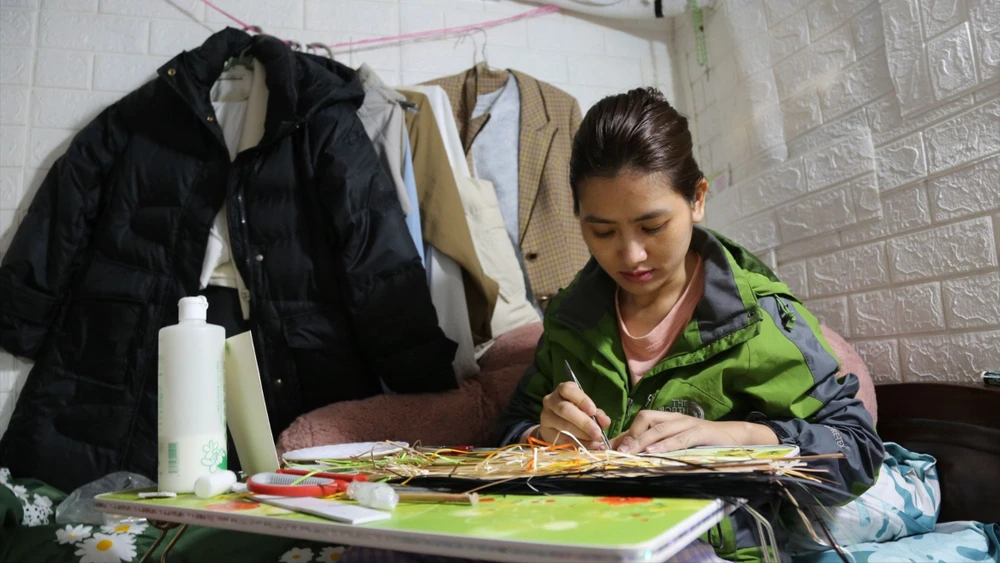
Ms. Trang said: “I am an employee of Thuong Thuong Handmade - a workshop that makes handicrafts for the disabled and sick. The workshop receives orders from customers, mainly foreign orders, and then the employees in the workshop accept orders depending on each person's health.”
Currently, Ms. Trang cannot do heavy work, so she accepts making paper cards, which not only helps her earn extra money to cover her living expenses, but also helps her life to be less sad and fits in with her hospital schedule. Ms. Trang can only work on days when she does not have to go to the hospital, but on days when she has dialysis, she has to rest the whole day because she is tired. For each product, she is paid 21,000 VND, on average, she can make 7-8 cards per day.
Not young and healthy enough to do the job Trang is doing, after 12 years of dialysis and living in a rented house in lane 121 Le Thanh Nghi, Ms. Binh chose to sell water at the hospital and collect scrap metal to earn money to cover her living expenses, but it was not much, mainly relying on her family and benefactors. On days when she was healthy, she could sell and earn a few coins, then she saved up to buy medicine every month. “My life is like that, so I have to accept it. If I give up, every time I am in pain, my family will not feel at ease leaving me at home. When I first discovered the disease, I was very sad, wondering why I had this disease, from then on my family's life declined, the economy was difficult, and many things happened in the house,” Ms. Binh shared.
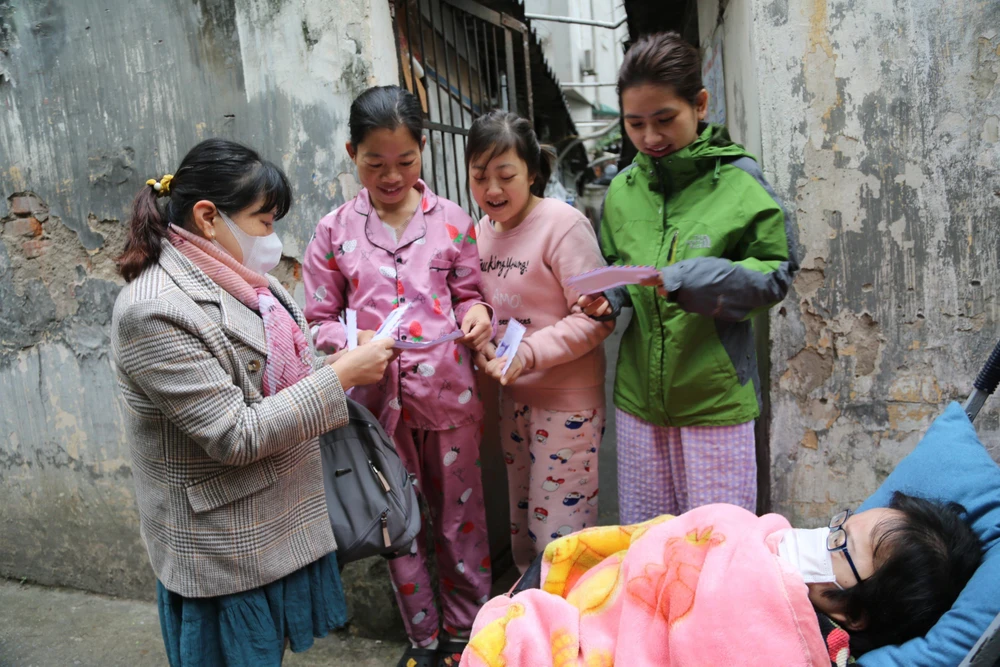
Ms. Trang shared: “I myself am a patient, but when I am sick, tired, and have to take care of myself, I feel very sad. During the holidays, I was told I could go back to my hometown, but on the first and second days, I had to go to Hanoi for dialysis. While everyone else was able to go out and play, I had to go to the hospital every other day, and I couldn’t afford to go anywhere. Looking at my active, healthy friends, I felt very jealous. At that time, I had the additional thought that compared to people in the same situation, who were sick, I felt luckier because I could still move around and work. That was the motivation for me to try harder.”
Without family around, the sick people in the neighborhood always rely on each other to survive, take care of each other, and help each other. Whoever does what job or meets customers, they introduce each other to earn money to live on. When someone in the neighborhood is seriously ill or has to go to the emergency room, someone feeds them, gives them medicine, and asks about their health. Ms. Trang shared: “With my current condition, the dream of a kidney transplant is still very far away, I just hope that I will be healthy, have a stable job to have money to go to the hospital and cover my living expenses.”
HA NGUYEN
Source


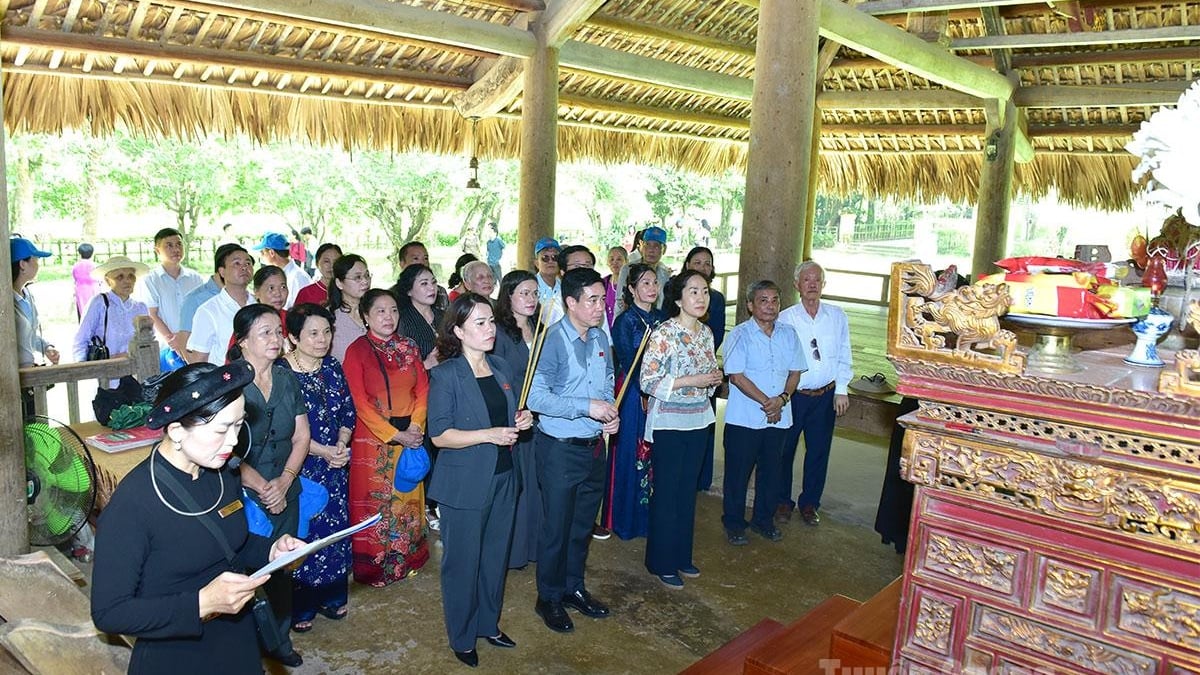
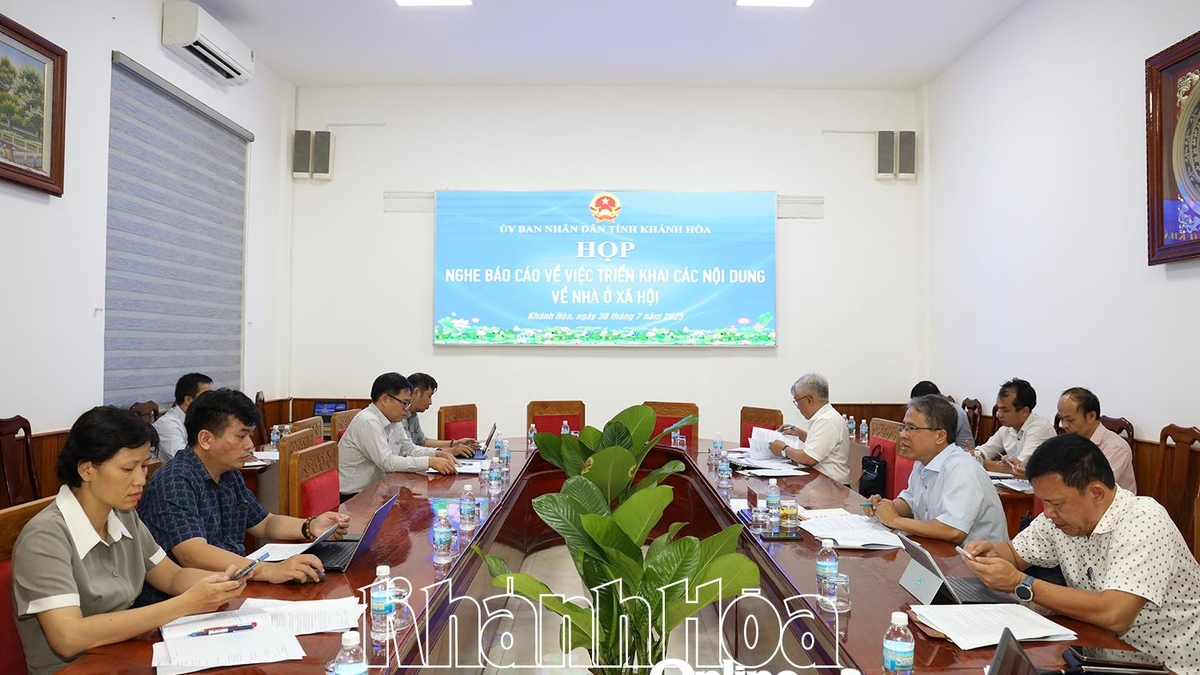


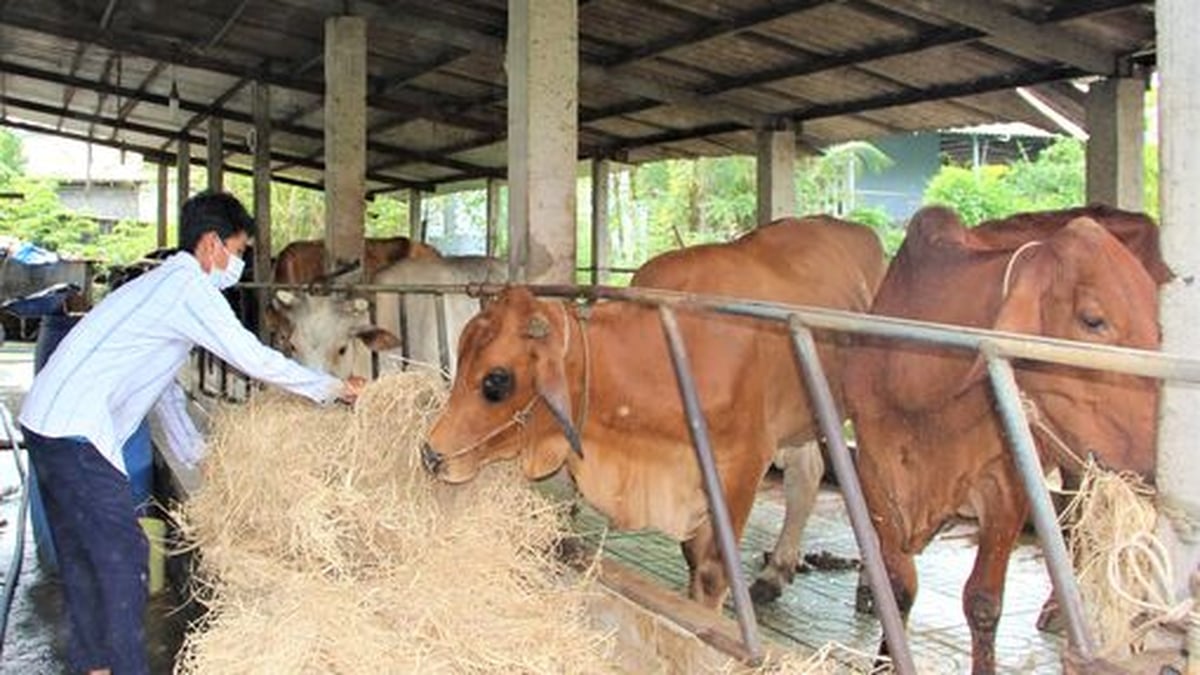

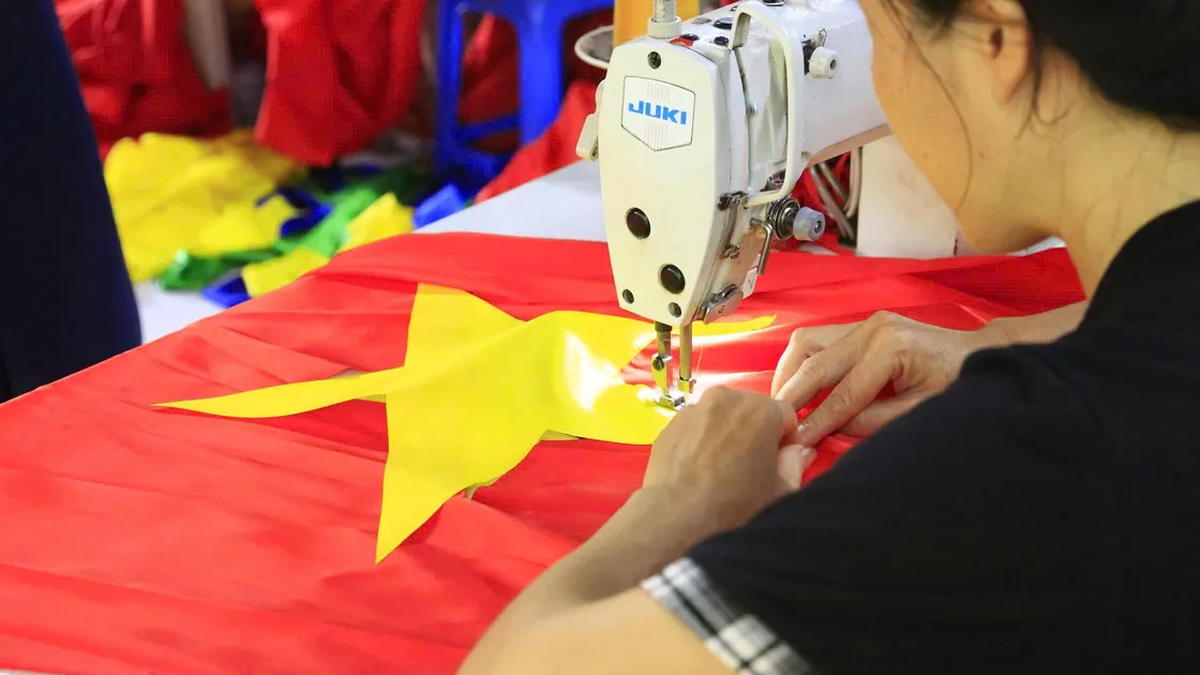
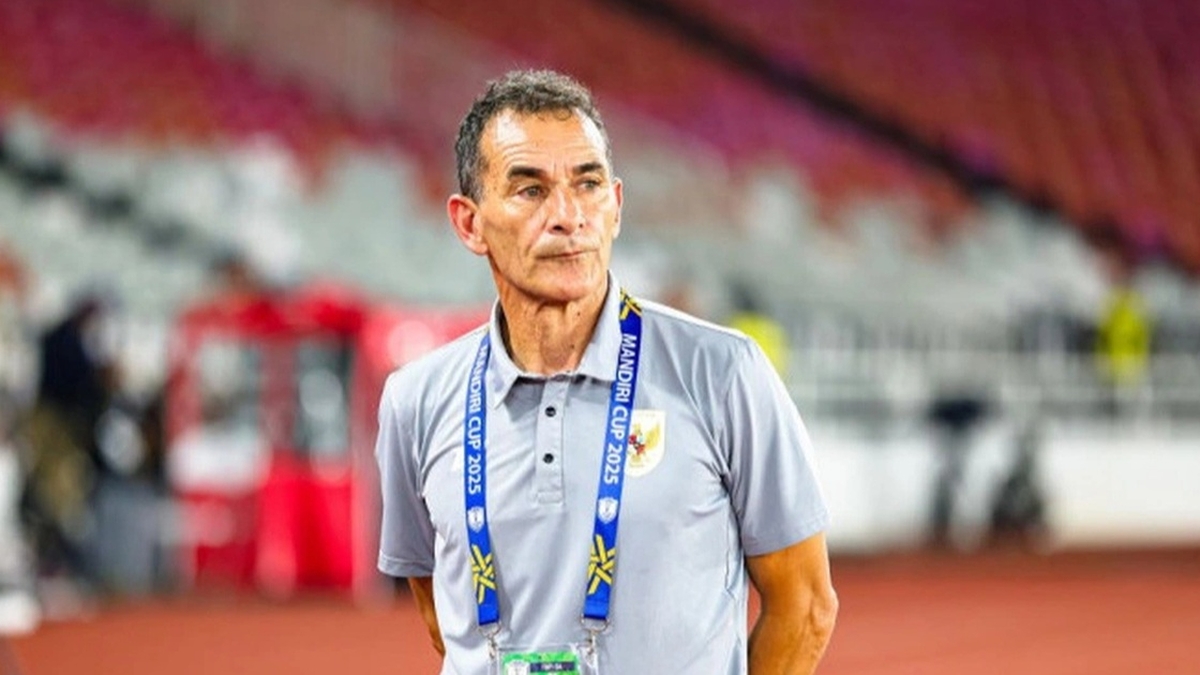
![[Photo series] Close-up of the bridge worth over 1.6 trillion VND and the road connecting Dong Nai with Ho Chi Minh City preparing to open to traffic](https://vphoto.vietnam.vn/thumb/1200x675/vietnam/resource/IMAGE/2025/7/30/e8806165b0a240c0b8f139f6f22f3a8a)
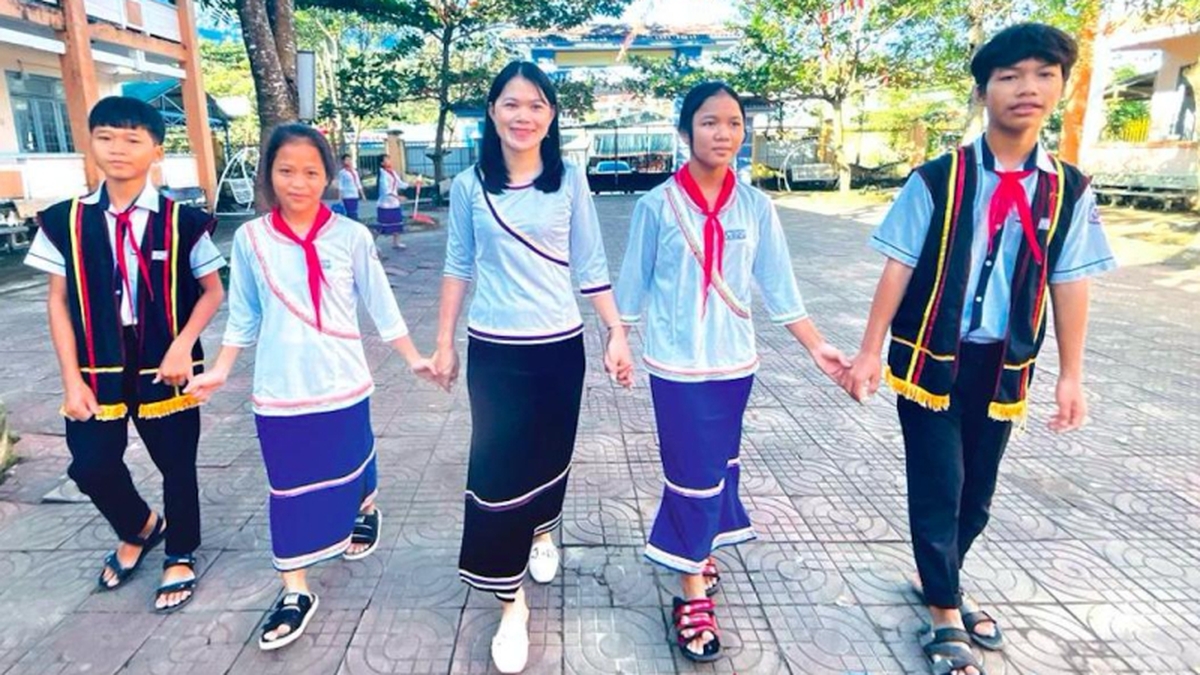













![[Photo] National Assembly Chairman attends the seminar "Building and operating an international financial center and recommendations for Vietnam"](https://vphoto.vietnam.vn/thumb/1200x675/vietnam/resource/IMAGE/2025/7/28/76393436936e457db31ec84433289f72)






















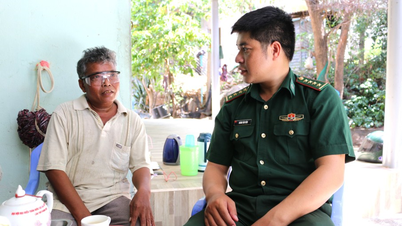








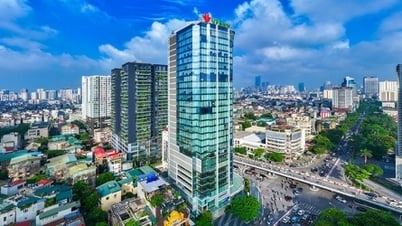


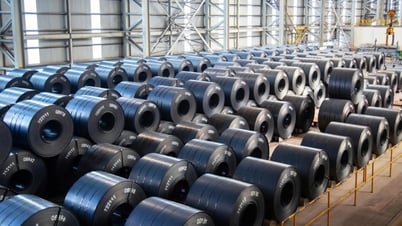







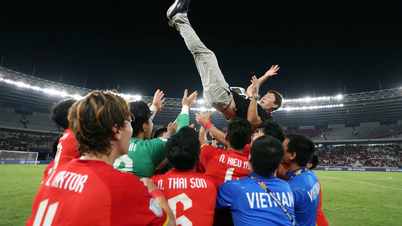

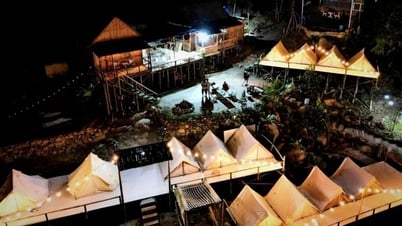





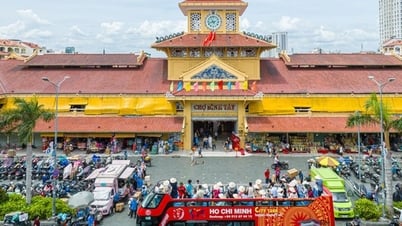
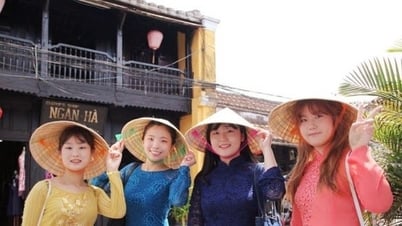













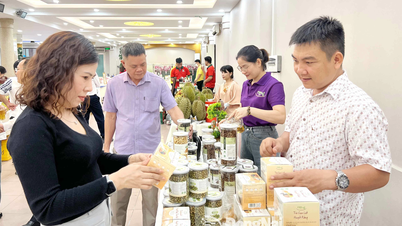






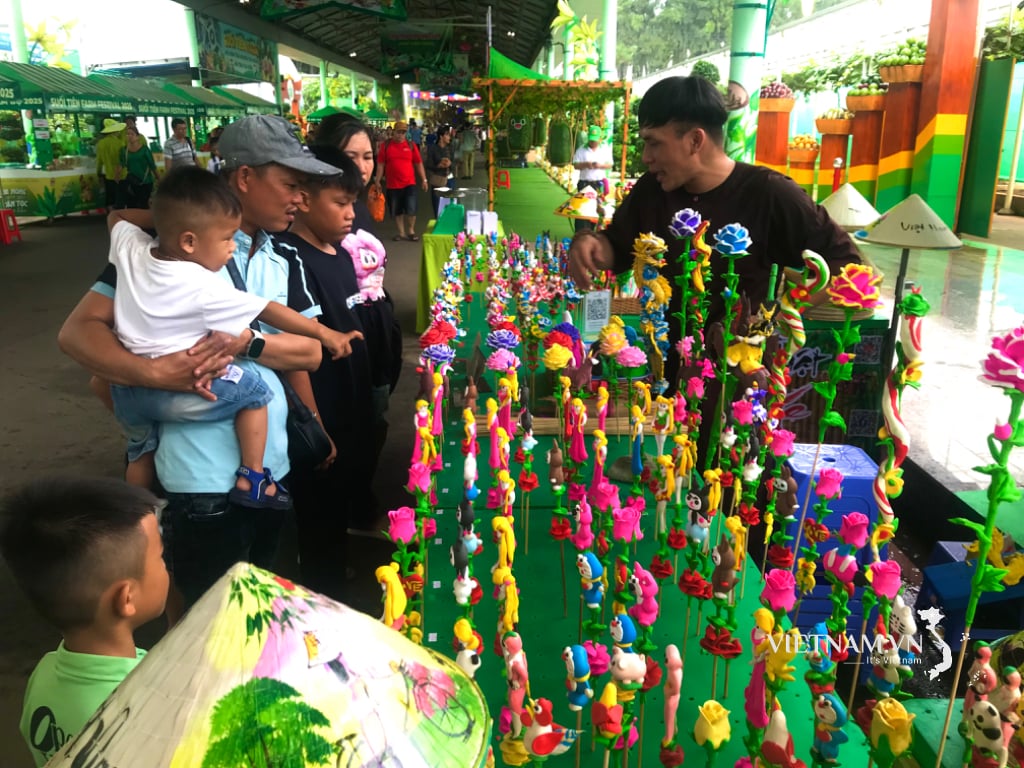
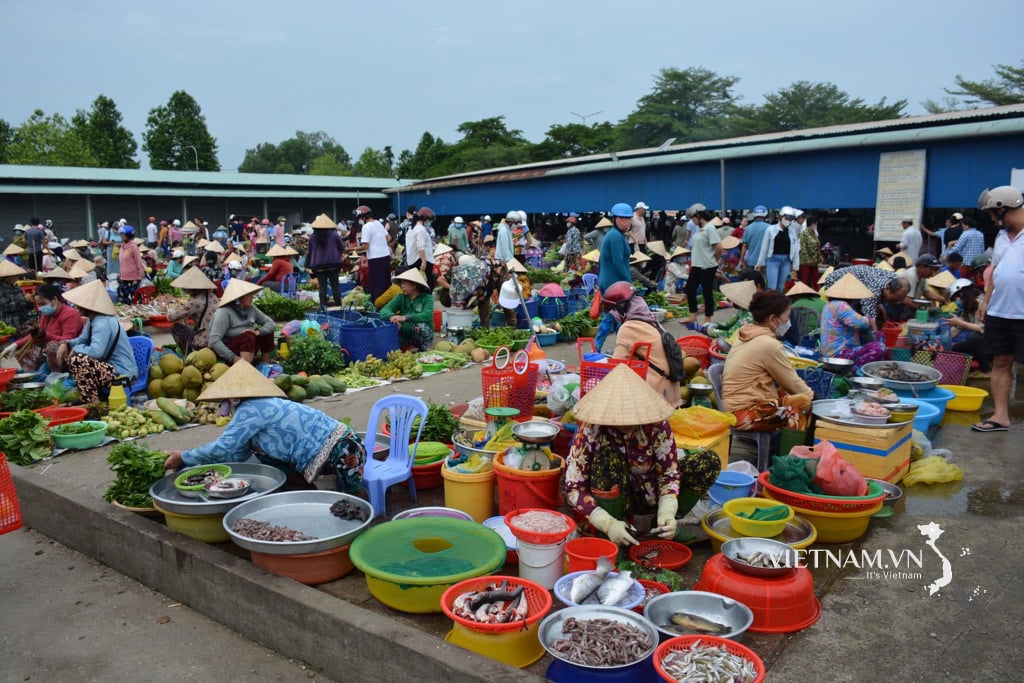
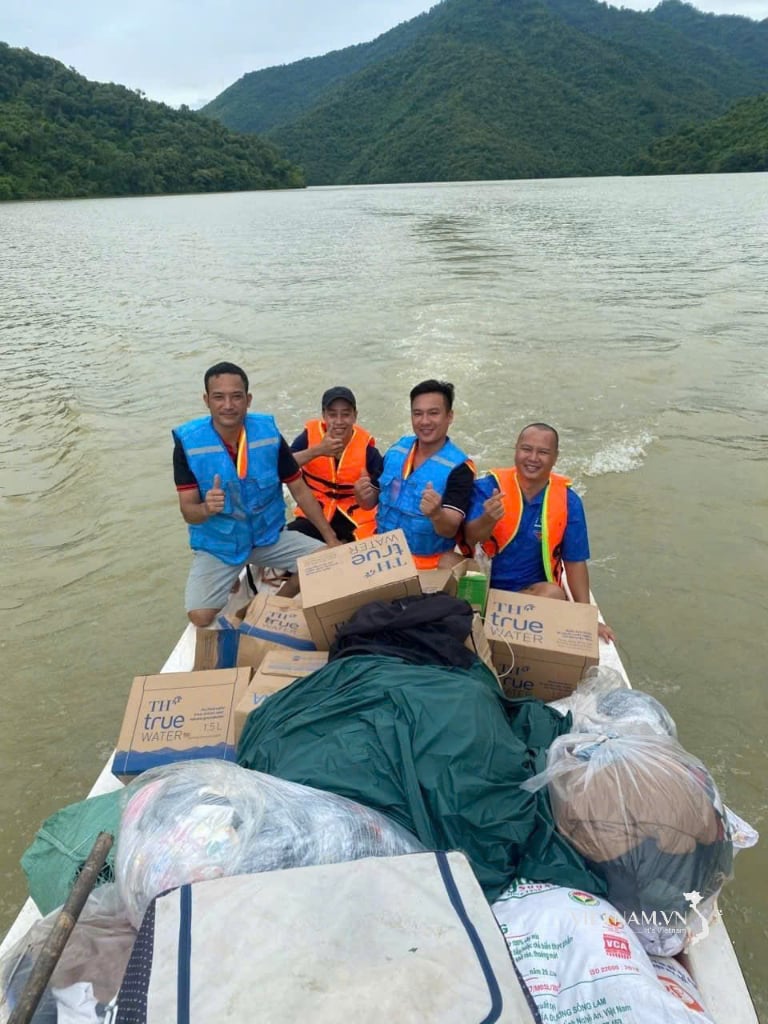
Comment (0)